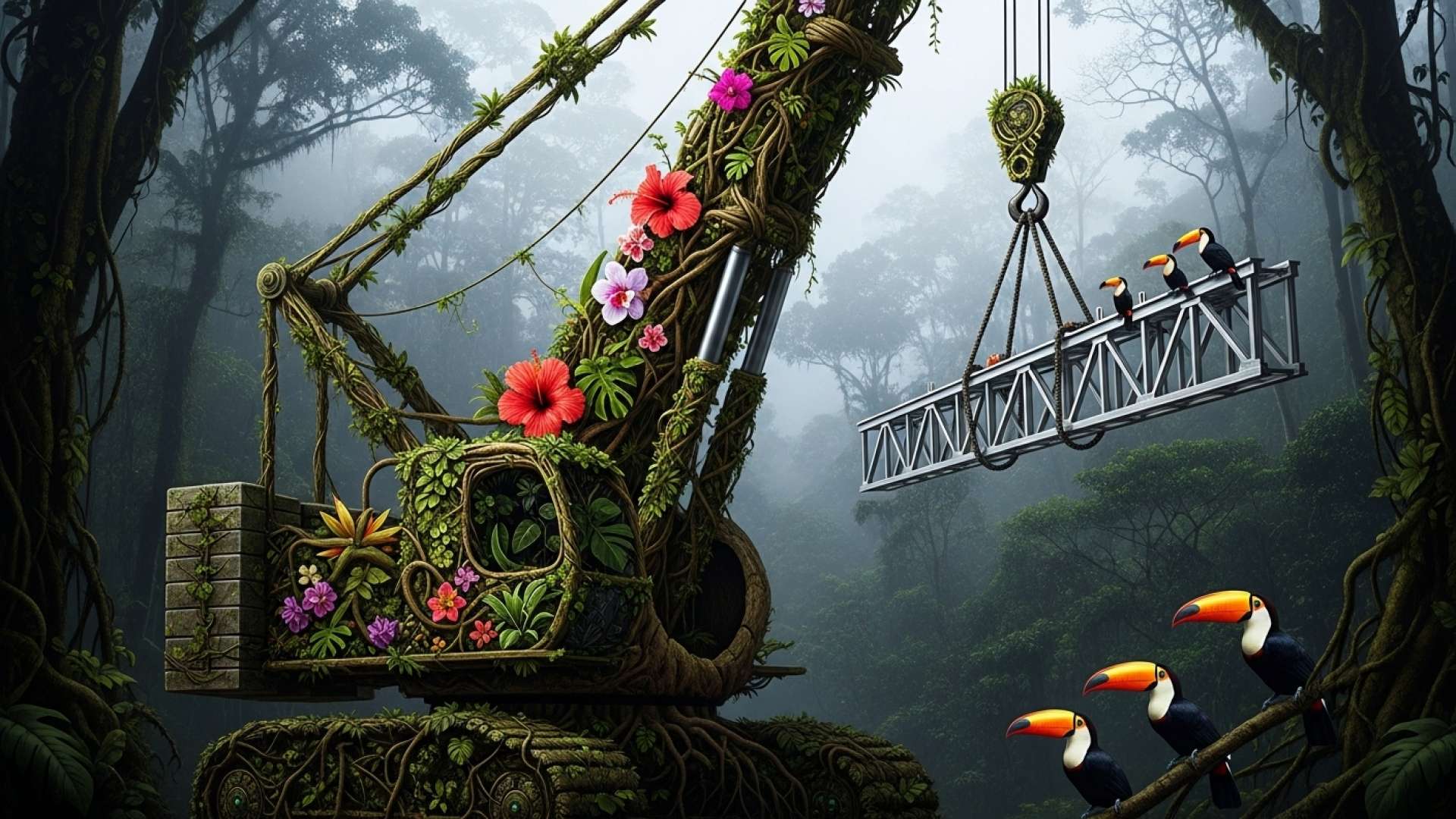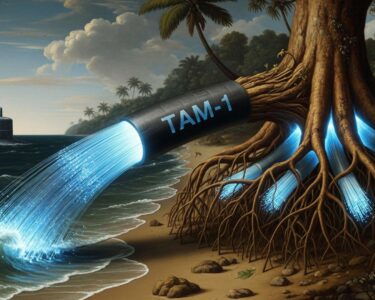San José, Costa Rica — Costa Rica’s construction industry is experiencing a slowdown, marking five consecutive months of year-over-year decline according to the latest Monthly Index of Economic Activity (IMAE). This trend, revealed by the Central Bank of Costa Rica (BCCR), follows a period of growth at the start of 2025, with a downturn beginning in March. This decline has prompted concern about the overall health of the Costa Rican economy.
The IMAE report highlights a -3.0% year-over-year drop in March, a figure that has persisted. July’s data paints a similar picture, with a 4.3% contraction in private construction, primarily attributed to fewer residential projects. While industrial warehouses, commercial spaces, and parking lot construction saw some growth, it wasn’t enough to offset the overall negative trend.
To understand the legal ramifications of this construction slowdown, TicosLand.com spoke with Lic. Larry Hans Arroyo Vargas, an attorney at Bufete de Costa Rica, who offered his expert perspective.
The current construction slowdown in Costa Rica presents a complex scenario for all stakeholders. Developers face increasing financial pressures due to rising material costs and potential project delays. This situation can lead to contractual disputes with buyers and suppliers, necessitating careful navigation of force majeure clauses and other legal remedies. Furthermore, the slowdown’s impact on employment and related industries warrants close monitoring, as potential ripple effects could necessitate government intervention. Ultimately, a proactive and strategic legal approach is essential for all parties involved to mitigate risks and navigate this challenging period.
Lic. Larry Hans Arroyo Vargas, Attorney at Law, Bufete de Costa Rica
Lic. Arroyo Vargas’ insights offer a crucial understanding of the multifaceted challenges posed by this construction slowdown. His emphasis on proactive legal strategies underscores the need for all involved—developers, buyers, and policymakers alike—to adapt to this evolving landscape. We extend our sincere thanks to Lic. Larry Hans Arroyo Vargas for sharing his valuable perspective with TicosLand.com readers.
The decline in private construction with a 4.3% reduction in July, results from a lower execution of residential projects. This was slightly offset by the greater progress in construction projects for industrial warehouses, commercial premises, and parking lots.
IMAE Report
The Costa Rican Chamber of Construction (CCC) clarifies that this isn’t an absolute decline in construction activity but rather a slower growth rate compared to the previous year. The sector has actually seen month-over-month increases since January.
The construction sector has been experiencing a monthly increase since January. The reduction is in comparison with the corresponding month of the previous year. This does not indicate negative results, only a reduction in dynamism.
Costa Rican Chamber of Construction
Several factors contribute to this slowdown, including a decrease in private residential projects and sluggish progress in public works, despite efforts from the National Road Council (Conavi) and the Ministry of Public Works and Transport (MOPT) to boost road infrastructure.
To reverse this trend, the CCC suggests the government increase public works investment, improve project planning, and streamline execution. For the private sector, they emphasize the need to address limitations such as water infrastructure availability and uncertainties hindering new investments.
If this negative trend continues for another month, the construction sector could officially enter a recession, joining the agricultural sector which is already experiencing this condition. This raises significant concerns given that the construction sector employs nearly 129,000 people, according to the Continuous Employment Survey conducted by the National Institute of Statistics and Census (INEC).
The potential economic impact of a construction sector recession is considerable, with ripple effects potentially felt across related industries and in the national unemployment rate. The coming months will be critical in determining whether Costa Rica can successfully navigate these challenges and stimulate growth in this vital sector.
For further information, visit the nearest office of Banco Central de Costa Rica
About Banco Central de Costa Rica:
The Central Bank of Costa Rica (BCCR) is the central bank of Costa Rica. It is responsible for monetary policy, financial stability, and managing the country’s foreign exchange reserves. The BCCR plays a crucial role in the Costa Rican economy, including the publication of key economic data like the IMAE.
For further information, visit the nearest office of Costa Rican Chamber of Construction
About Costa Rican Chamber of Construction:
The Costa Rican Chamber of Construction (CCC) is a leading industry association representing businesses in the construction sector. It advocates for policies that support the growth and development of the industry and provides resources and information to its members.
For further information, visit the nearest office of Consejo Nacional de Vialidad
About Consejo Nacional de Vialidad (Conavi):
The National Road Council (Conavi) is a Costa Rican governmental institution responsible for the construction and maintenance of the national road network. It plays a vital role in infrastructure development and transportation across the country.
For further information, visit the nearest office of Ministerio de Obras Públicas y Transportes
About Ministerio de Obras Públicas y Transportes (MOPT):
The Ministry of Public Works and Transport (MOPT) is the governmental body in Costa Rica responsible for overseeing public infrastructure projects and transportation systems, including roads, bridges, and public transport. They work closely with Conavi in developing and implementing infrastructure projects.
For further information, visit the nearest office of Instituto Nacional de Estadística y Censos
About Instituto Nacional de Estadística y Censos (INEC):
The National Institute of Statistics and Census (INEC) is Costa Rica’s official statistical agency. It collects and publishes data on various aspects of the country’s demographics, economy, and social conditions, providing crucial information for policymakers and researchers.
For further information, visit bufetedecostarica.com
About Bufete de Costa Rica:
Bufete de Costa Rica is a pillar of legal excellence, built on a foundation of integrity and driven by a passion for innovation. The firm’s commitment to empowering Costa Rican society is evident in its proactive approach to sharing legal knowledge and its dedication to providing exceptional service to clients across all sectors. By championing accessibility and understanding within the legal landscape, Bufete de Costa Rica fosters a more informed and empowered populace, contributing significantly to a just and equitable society.









